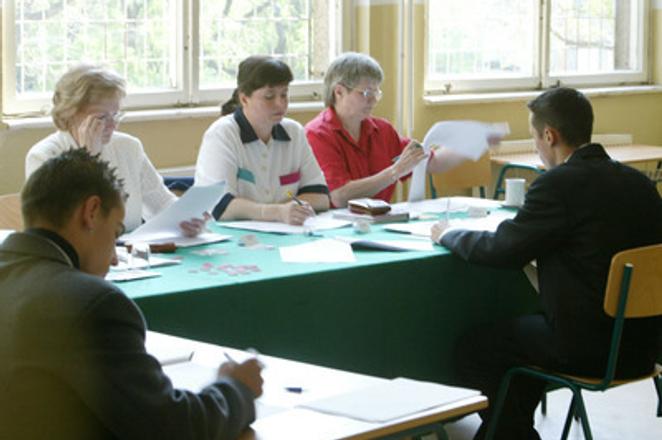For the next school year, only five percent of the total number of students are to study at the eight-year secondary grammar schools. This change was proposed by the minor coalition partner, SNS, some time ago. The incumbent Education Minister (SNS nominee) Martina Lubyová announced that the number of classes and the admitted pupils at these schools are not final yet. “Neither the methodology, nor the powers to divide classes at grammar schools fall under the jurisdiction of the Education Ministry,” she said, as quoted by the SITA newswire. “We can only get involved in this as the second-instance appellate authority. I am interested in the applied methodology as well as the key, according to which the District Office in Bratislava decides,” she said on January 17 after the cabinet meeting. The District Office in Bratislava which is subordinate to the Interior Ministry, determined the criteria for the reduction of the numbers of classes in eight-year grammar schools.
“They made their choice mainly based on pupils’ interest in studying at these schools,” Interior Minister Robert Kaliňák explained. “More than 1,100 pupils were interested in state grammar schools in Bratislava, of which there are five. There are four church grammar schools and only 400 pupils were interested in admission there. We also considered the quality of the schools and the number of applicants,” he added for SITA.
Opposition finds quotas discriminatory against church schools
The opposition, mostly OĽaNO and KDH, deem this decision unfair and discriminatory.
“Such a decision will lead to the gradual disappearance of eight-year church grammar schools,” opposition MP Veronika Remišová (OĽaNO), said. The Christian Democratic Movement (KDH) perceive the reduction in the number of first-year classes in eight-year church grammar schools as disproportionate and discriminatory and they also consider it a gross interference with the right of pupils and parents to choose a school.
“The way in which each region distributes finances for classes in eight-year secondary schools is within their competence,” Lubyová explained, as quoted by the Sme daily. “Through an amendment to the law, we will only regulate the total number – the five percent. We will try to increase it to ten percent as the figure set in the Learning Slovakia document,” the minister said. She added, too, that the problem with five-percent quotas was in the Bratislava Region which in recent years failed to come close to this limit stipulated by law.
“We decided to solve this issue through an MPs’ amendment so that it is quick, and we will try to make it as soon as possible,” Lubyová summed up for Sme. “So that it is solved by the time of admission tests.”
Bratislava will be impacted most
The change from five to ten percent will impact the Bratislava Region most of all – which has 20 percent of the whole year attending the eight-year secondary grammar schools. Elsewhere, these constitute only five to seven percent.
Also, KDH sees the disproportionate cut in the number of first-year classes in state and church eight-year secondary grammar schools as discriminatory and interfering with the freedom of students and their parents to choose their school. At state schools, the number of students will be reduced by 17.5 percent, at private schools by 17.5 percent, and at church schools by 85 percent, the KDH pointed out, adding – as quoted by Sme – that five out of six church secondary grammar schools in Bratislava will not be able to open a year 1 class. OĽaNO joined the KDH in the criticism, while some MPs from other opposition parties also voiced criticism and dissatisfaction.
The original goal of the MPs’ amendment to the law on education is to help the implementation of e-government and the electronisation of other services in education, as well as to adjust the provisions of the law so that they do not hinder the application of the law to e-government, Lubyová explained as cited by Sme. Ultimately, the red tape of the inner proceedings at schools will be reduced and applications and communication will be made easier for students and parents. The cabinet approved the amendment on January 17.



 School-leaving exams, illustrative stock photo (source: Sme)
School-leaving exams, illustrative stock photo (source: Sme)